
Adding trastuzumab emtansine to tucatinib appears to significantly improve progression-free survival in patients with metastatic HER2-positive breast cancer, says Sara Hurvitz, MD, FACP.

Your AI-Trained Oncology Knowledge Connection!


Adding trastuzumab emtansine to tucatinib appears to significantly improve progression-free survival in patients with metastatic HER2-positive breast cancer, says Sara Hurvitz, MD, FACP.
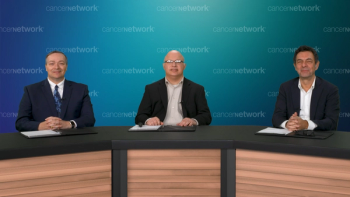
Luciano Costa, MD, reviews recent data from the PERSEUS trial investigating the combination of daratumumab, bortezomib, lenalidomide and dexamethasone in newly diagnosed multiple myeloma patients.
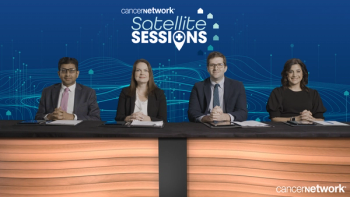
An overview of bispecific antibodies available for the treatment of patients with relapsed/refractory multiple myeloma.

A panel of multiple myeloma specialists discuss emerging data and ongoing research that are informing treating paradigms for patients with multiple myeloma.

Caitlin Costello, MD, discusses her insights and considerations when choosing the next line of therapy in a patient with relapsed/refractory multiple myeloma.
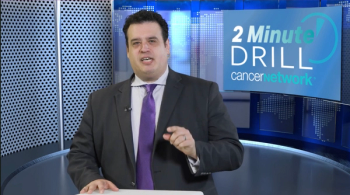
Joshua Richter, MD, of Mount Sinai, and other hematologic cancer experts join CancerNetwork following the 2023 ASH Annual Meeting & Exposition to discuss highlights of the conference in a game show–style production.
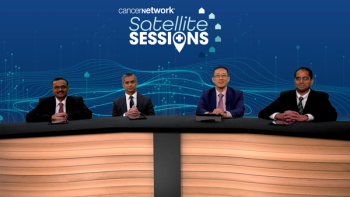
Alykhan Nagji, MD, provides a brief overview of the landscape surrounding the treatment of patients with stage-III resectable NSCLC.
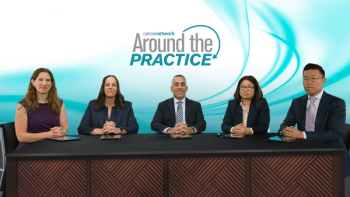
The panelists close by emphasizing key takeaways regarding the management of HER2+ colorectal cancer, including early molecular profiling to enable targeted therapy sequencing, assessing HER2 amplification level, and having a strategic plan upfront mapping out potential targeted therapy options rather than just starting chemotherapy.

Drs Ciombor and Ahn discuss emerging HER2-targeted therapies in colorectal cancer, including antibody-drug conjugates and novel antibodies.
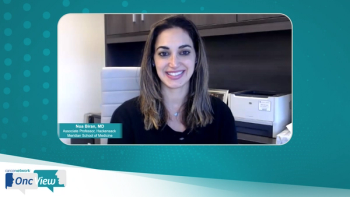
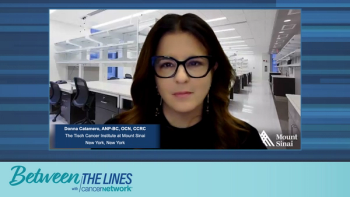
A panel of experts on multiple myeloma reviews GPRC5D-related oral toxicities seen in patients receiving treatment.
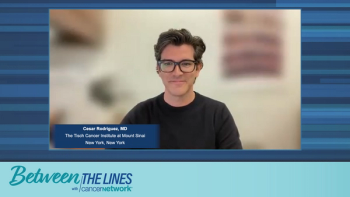
Comprehensive insights on the clinical management of adverse events from talquetamab seen in patients with multiple myeloma, including cytokine release syndrome and infections.

In this Cancer Network Around the Practice program, Mazie Tsang, MD offers an overview of the current landscape surrounding frontline therapy in CLL.
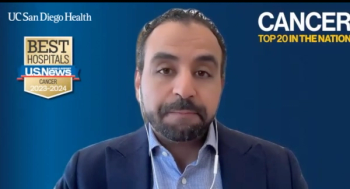
Pembrolizumab combined with carboplatin and paclitaxel resulted in response rates in patients with recurrent endometrial cancer.

In this Cancer Network Around the Practice program, Susan Dent, MD discusses the case of a 66-year-old patient with grade 3 triple-positive breast cancer who presents with multiple liver and bone metastases after front-line treatment with trastuzumab and letrozole.

Treatment with lisocabtagene maraleucel in the TRANSCEND CLL 004 study raises no new safety concerns in patients with relapsed/refractory chronic lymphocytic leukemia, says Tatyana Feldman, MD.
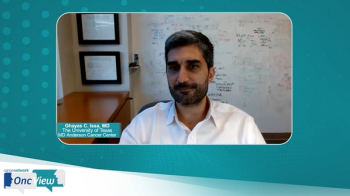
A medical oncologist reviews clinical trial data for revumenib and ziftomenib for patients with relapsed/refractory acute myeloid leukemia.
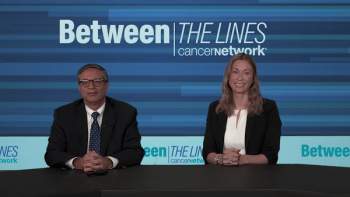
Sagar Lonial, MD, provides an overview of the currently available treatment options in relapsed/refractory multiple myeloma.

Ghayas C. Issa, MD, discusses the pathway between KMT2A rearrangements/NPM1 and menin in relation to leukemia cells and how these genetic abnormalities impact prognosis.

KRYSTAL-7 is a study exploring the efficacy of adding adagrasib to first-line pembrolizumab in patient with NSCLC with varying PD-L1 expression levels, showing promising response rates and progression-free survival, but also adverse events like hepatotoxicity.

Dr Narjust Florez discusses the KRYSTAL-1 trial, focusing on the effectiveness and side effects of adagrasib in treating patients with NSCLC and KRASG12C mutations, and noting their impact on progression-free and overall survival.
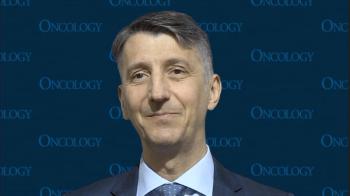
Ibrutinib plus venetoclax appears to be effective across the overall chronic lymphocytic leukemia population in the CAPTIVATE study, although progression-free survival is shorter for those with TP53 mutations.
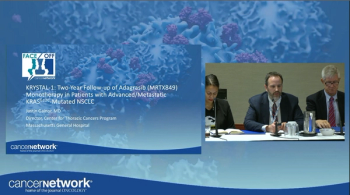
A review of adagrasib in the KRYSTAL-1 trial in patients with NSCLC.
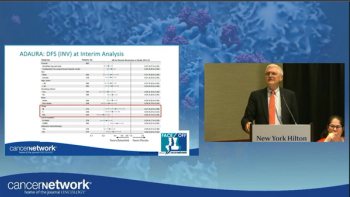
Osimertinib monotherapy as the standard of treatment for frontline EGFR mutant advanced NSCLC will be replaced by combination therapies.

The panel closes by sharing final thoughts in the management of relapsed/refractory multiple myeloma, with a shared sense of optimism for advancements in treatment.
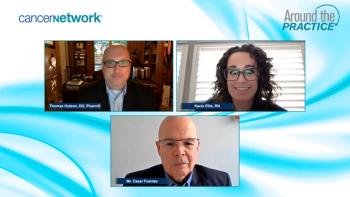
Mr. Fuentes felt it was important to understand the range of potential side effects to anticipate how his body would potentially react to treatment for RCC and determine his physical abilities and support needs, but was most focused on whether his first post-treatment scan showed tumor shrinkage.

Nurses play a key role in kidney cancer care by educating patients on medications, closely monitoring and managing side effects, coordinating care, providing emotional support, and serving as the first line of communication with patients about treatment concerns.

Key opinion leaders review the management of CAR-T therapy side effects in patients with relapsed/refractory multiple myeloma, including cytokine release syndrome and neurotoxicity, and emphasize the importance of early supervision and known toxicity timing.
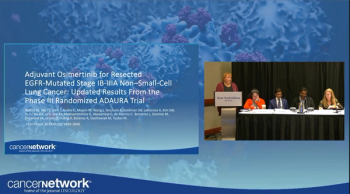
EGFR-mutated stage IB-IIIA non-small cell lung carcinoma that has been removed and treated with adjuvant osimertinib.
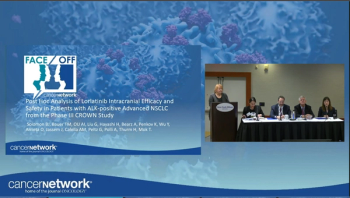
A discussion on the Post Hoc Analysis of Lorlatinib Intracranial Efficacy and Safety in Patients with ALK Positive Advanced NSCLC: Phase III CROWN Study